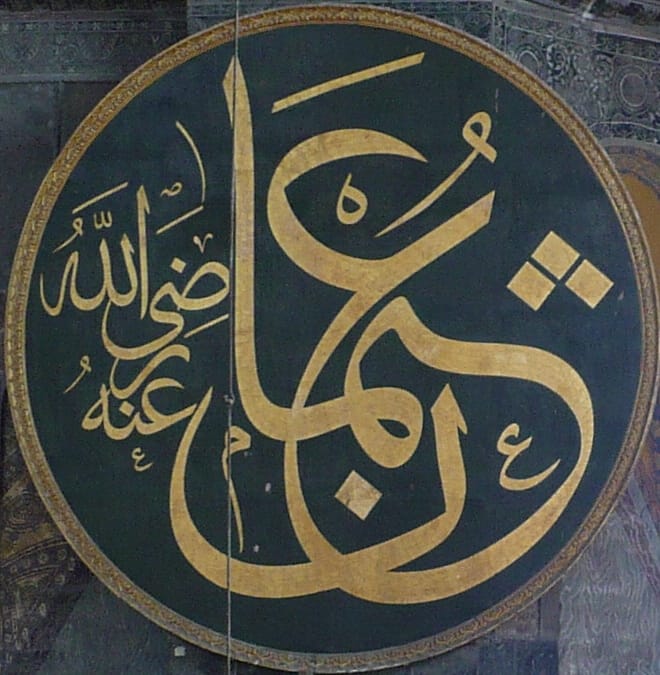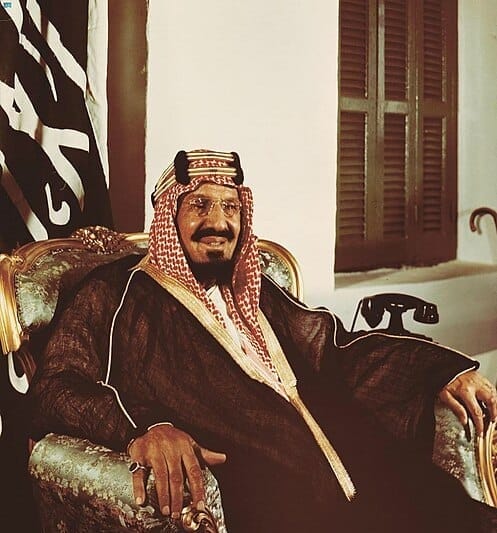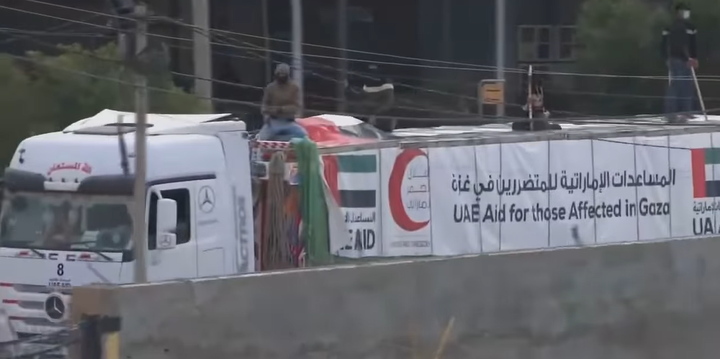Violence is NOT Inherent in Islam: Sustainable Strategic Leadership Makes Islamic Lands Peaceful, Prosperous & Empowering.

Violent military alliances, like Genghis Khan’s Mongol Empire, are incorporated to spread violence as an end in itself. However, any collective consensus that places ethical monotheistic values at its core seeks to survive and bring good into the world. Even the vilest critics of Muslims accept that Islam is an Abrahamic religious tradition that has brought tremendous enlightenment to many regions of the world.
Today, many anti-Muslim commentators focus on violence and negative stereotypes in Islam. The world’s media does not often talk about how people live in Islamic countries and communities, but rather, the dysfunctional elements of such societies – most notably war, violence, and destitution.
This article examines the nature of Islamic societies and the ideal peacebuilding and aspirational elements of the Islamic community from the earliest days of the Ummah to our present generation. It identifies volatile areas and how they are often explored and exploited by extremist elements to promote violence and dysfunctional behaviors in Islamic communities.
Ultimately, the article shows that Islamic communities have thrived peacefully and progressively for many centuries with the ideal type of strategic leadership. Today, the Gulf states, Morocco, and several other countries are on a path towards such peaceful growth, which can potentially revive the Golden Age of Islam, which put the Muslim world far ahead of Europe in most of the rest of the world through the 11th and 15th Centuries.
Islam is distinct on four premises. These pointers ultimately require an overall potentate who can manage the broad scope and depth of Islam in a specific jurisdiction. This article critiques these four pointers and explains why some Islamic areas with limited leadership are prone to violence, which can be efficiently managed by an appropriately competent leadership structure.
Premise 1: Islam is a Transnational Abrahamic Monotheistic Movement
From the earliest history of Islam in Arabia, the Faith focused on consolidating the most profound principles of ethical monotheism. This includes among other things:
1. The Unity of the Creator,
2. Prayer
3. Abrahamic rites, and
4. Equality and diversity of humanity.
Contrary to what most people think, monotheism existed in different forms in the Middle East outside Judaism and before Christianity and Islam[1][2]. In pre-Islamic Arabia, there were extensive discussions and religious debates about monotheism.
Thus, Islam consolidated and perfected core elements of ethical monotheism within the tradition of the patriarch, Ibrahim (Avraham/Abraham). This led to a consensual framework for worship, rites, and ethics that was universally accepted among the earliest community of Muslims, the Ummah, who lived under the Constitution of Medina (Dustūr al-Madīna).
The Constitution of Medina did not establish a state or a religion, as we may oversimplify it in today's terms[3][4]. The Constitution created a supranational political and legal framework for coexistence between believers of Islam and their non-Muslim neighbors.
"Supranational" is used here to mean a constitutional arrangement that transcends national boundaries or governments. The most common context in which this word is used in our generation relates to the European Union, which has powers that go beyond the authority of individual EU member states.
However, the Constitution of Medina was a much more expansive legal tool than the European Union. It involved rules for the Ummah and accepted non-Muslim groups. The Constitution of Medina had various meta-rules that guided the constitutional systems of future Muslim states (secondary rules or rulemaking systems), as well as specific rules that guided specific conducts (primary rules).
Thus, Islam was not meant to be confined to a specific space. Instead, it was meant to lead to a transnational and transethnic system. History has shown that the model of the Constitution of Medina led to the creation of many states and empires that applied three frameworks of law:
1. Constitution of Medina as a meta-rulemaking system,
2. Constitutions of states (secondary rules), and
3. Laws, legislations, and customs over specific legal issues (primary rules)
This is at the crux of Islam's transnational nature. Since the promulgation of the Constitution of Medina, many state incubation processes have been undertaken within its parameters.
Until 1924, when the Ottoman Caliphate was abolished by the Turkish National Assembly, the world of Islam had a Caliph who was widely recognized as the custodian of the Constitution of Medina.
While the Sunnis and Shiites split on the issue of the rightful hereditary rules, the institution of the Caliph recognizes Islam's transnational and supranational nature.
Premise 2: Islam Comprehensively Regulates Every Aspects of Islamic Societies Directly
Islam is not the only mega-transnational religion we have known in history. Judaism, Christianity, Islam, Buddhism, Hinduism, and many other religions have expanded across states and ethnic groups.
However, for practical and survival purposes, most of these mega-religions have been avoidant in handling challenging themes like:
1. Politics
2. Absolutism, and
3. Immutability of the revealed tradition.
Judaism resolved this by focusing on the house of King David as the Jewish people's legitimate political leadership system. This is conditioned on the existence of appropriate elements for exercising Davidic kingship after the Jewish people were exiled from the land of Israel.
From the earliest exile, Judaism split the religion between universal and particular rules. Thus, Judaism recognizes that monotheism involves recognizing the coming together of different parts and peoples.
Therefore, in Judaism, there is Israel and other nations, each of which have a special relationship with the Creator. This is the root of the belief that the righteous of all nations will be rewarded in the Afterlife.
Due to this, Judaism does not actively seek converts, and a Jew is taught the particular rules of the Faith and universal values to engage with the rest of the world.
Jews usually refrain from commenting on other people's religions and accept that the righteous of the nations are descendants of Noah with the same (sometimes superior potentials) as the leading Jewish scholars, mystics, and prophets.
By its design, Christianity separated politics from religion from its earliest days. This creates two separate domains in Christianity, which allows the sacred to exist side-by-side with the most fatalistic military infrastructure under the same umbrella of Christendom. The life of the disciples of the Christian Bible was remarkably different from the life of the Romans, who spread Christianity throughout Europe.
As such, Roger Williams’ (1603-1683) and the Puritans' demands for a separation between Church and State were consistent with Christianity's fundamental structures from the very beginning. This was later counterbalanced by Christian nations' rule of law, human rights, and written constitutions. All these pointers helped manage issues like the Church's absolutism and the authority of the revealed tradition.
Islam provides guidance for every aspect of individual and social life. This includes moral, economic, political, legal, material, cultural, intra-religious activities, affairs outside religion, national and international affairs.
The default position of Islam is that everything is permitted unless a standing rule in Islamic law forbids it. The ultimate goal is to obtain God's pleasure by embarking on a lifelong journey and obeying all the laws of Islam.
It is rare to find a Muslim who does not feel privileged to be a Muslim.
Every Muslim seems happy and content with the principles of Islam they embrace and apply.
However, the contentious issues around politics, the absolutism of aspects of faith, and the immutability of revealed texts require divine interpretations and universal reification of acceptable interpretations. Therefore, many sects and groups within Islam have different views on these complicated issues.
Until the end of the Ottoman Caliphate and its universally accepted jurisdiction of many Muslims, there was always a potentate, a strategic leader whose authority and affiliated network of religious leaders provided guidance and direction on these complex issues that inevitably led to tensions.
Although the Ottoman Empire no longer exists, remnants of many authoritative arms of the Ottoman system are still functional. There are great kings and rulers from royal families recognized many centuries ago in the Middle East and North Africa whose authority remains respected and honored. Such leaders are uniquely positioned to broker strategic leadership. In places like Saudi Arabia, the Maghreb (Northwestern Africa), and GCC states, several convocations of nations, sects, and ethnic groups are coordinated under the efficient guidance of potentates or strategic leaders. This leads to peace, prosperity, and empowering national structures.
Premise 3: Every Muslim needs an Islamic Teacher
No non-Muslim can pick the Quran, read it according to any known body of knowledge, and understand it fully.
Yet, Muslims under a competent religious authority tend to understand, appreciate, and apply Islamic principles in ways that give them stability and satisfaction.
Again, there are no known Muslims who practice under an accepted path of authority who complain about Islam.
This shows that Islam requires directions from a competent religious scholar or authority. This competent scholar or authority has to be trained by another competent authority, who must be trained by another, and so on, in a chain that goes back to the earliest days of Islam.
This means that Islamic scholarship goes hand-in-hand with a Muslim's lived experiences. In other words, an individual Muslim reflects the scholarly religious guidance they have received.
Thus, it follows naturally that a potentate who oversees a given jurisdiction must convene Islamic scholars and work with them to develop the appropriate traditional and religious limits.
In places where there are overlaps and gaps in religious authority, large populations of Muslims can go wayward. In many troubled zones of the Islamic world, those who err in history and cause wars are Muslims as well as their victims. However, in most cases, troublemaking Muslims do not come under an appropriate religious guidance system to accept intrinsic teachings relating to non-violence, among other sacred Islamic values.
There are many places in the Islamic world where people are left unattended by appropriate religious authority. This reiterates that appropriate strategic leadership can solve many problems related to violence and problematic practices in such disconnected communities.
Premise 4: Religious Authority, Jurisdictional Conventions & Practices of the Relevant Potentates Influence the Frequency & Role of Violence
Islamic communities thrive on comprehensive leadership. Such leaders oversee the application of elements of the Constitution of Medina, develop state structures that reflect the realities of the generation and region, and make relevant laws that are applied fairly and justly.
Where this three-level leadership system is missing, sociopolitical and socioeconomic factors lead to imbalances that often result in violence. This could be a result of opportunism or genuine radicalization based on values that are antithetical to the essence of Islam.
In 2009, an interview with the African terrorist organization Boko Haram indicated that the leader, Mohammed Yusuf, did not believe that rain was a result of evaporation but a creation of God[5].
They contended that anything that runs contrary to the teachings of Islam, like saying the world is spherical, was to be rejected. They did these things based on the belief that Western education dilutes pure Islamic teachings.
The question is – what constitutes “pure Islamic teachings”?
Would Boko Haram's leaders have held such beliefs if they grew up in Qatar or Saudi Arabia?
The answer is most likely no.
However, even if they did, in Qatar and Saudi Arabia, they were under an authority that would prevent them from abusing and misusing violence.
To be fair, Judaism and Christianity had members who believed that rain directly resulted from God's decision through the Medieval times until fairly recently.
Such a view is harmless if held in a quiet medieval European village. However, scientific discoveries have shown that scientific beliefs can exist alongside the central Abrahamic beliefs.
Today, universities like Imam Abdulrahman bin Faisal University in Riyadh offer some of the best Doctorate degrees in Geography. An Imam or Islamic religious leader who goes through this PhD program will most likely learn about evaporation, condensation, cloud formation, and rain. Such an Islamic scholar will probably learn about advanced techniques like cloud seeding to encourage artificial rainfall and the reforestation of deserts.
The fundamental question is – will a Saudi geographer give up Islam because they have learned empirical sciences?
The obvious answer is a resounding NO!
A learned Saudi cleric who is a master of the natural sciences will understand the mystical aspects of Islam alongside techniques to master and enhance the natural world. That refined mindset will lead to better interpretations of the Quran, better application, and improved living conditions for the people they lead.
Mohammed Yusuf, leader of the Boko Haram terrorist group in Northern Nigeria was said to be well-educated in the Western context and also drove about in a lavish Benz car[6]. If Western education is sin, the science used to assemble a car should also be condemned. This shows that Yusuf and his fellow terrorists were simply taking advantage of the sociopolitical opportunities to commit violence in Northern Nigeria. These gaps were created by years of corruption and neglect - a system that had roots in British colonialism, which local African politicians later exploited.
Thus, an appropriate potentate has the duty of setting up the framework for the evolution and development of Islamic communities according to the principles of the Medina Constitution, state-building structures, and sustainable law and order enforcement standards.
An Islamic potentate has to maintain the appropriate leadership structure and system. This will bring together religious scholars who will develop traditions and systems to steer the Muslims and non-Muslims in their jurisdiction appropriately and sustainably.
It behooves upon the ruling authority at any point in time to define the traditions and applicable rules in specific situations. However, this requires balancing many competing pointers to formulate appropriate rulings that ensure the survival of the society. Such a process requires considering many different things that ensure the survival of societies into the future.
Modern Sustainable Strategic Islamic Leadership: The Case of Morocco & The Maghreb
Morocco’s monarchy embraced diversity and coexistence from the earliest years.
Morocco remains an example to most states in the Middle East and North Africa.
The monarchy centralized its clerical system, which embraced pluralism in ways that reflected the Constitution of Medina. Thus, many sects operate under Moroccan rule.
Although the creed is fundamentally Maliki, the Moroccan rulers have adapted it to local conditions. However, the centrality of pluralism and gradual integration of affairs made Morocco distinct from most parts of the Ottoman Empire.
Ottoman politics' top-down structure lent itself to palace coups and regicides on some occasions.
However, Morocco created its structures through collaboration at the lower rungs of Moroccan society, which led to the evolution of a collaborative statecraft. The Moroccan monarchy actively protected and included minorities, which won the monarchs a lot of respect around the North African region.
Jews in Morocco were always protected uncompromisingly.
Through this, traditions were developed. One is Mimouna, which celebrates the end of the Jewish Passover. Jews and their Muslim neighbors held activities together to deepen the roots of their coexistence. Indeed, coexistence comes from little opportunities to collaborate and appreciate each other's humanness.
Interreligious scholarship is also popular in Morocco. The Arabic Torah commentary of the Jewish Rabbi and Exilarch, Saadia Gaon (882-942), is quite popular in the Islamic world. It is quoted within the broad context of Tafsir or exegesis of recognized holy books in Islam to understand the broader context of the Will of God.[7].
Furthermore, Morocco has maintained a tradition that is known throughout Northwest Africa, where commerce, trade, and non-violence are promoted between Muslims and non-Muslims. Morroco's peacebuilding traditions directly influenced neighboring countries like Senegal, Guinea, Mauritania, and others [that is why you have never heard of a terrorist attack in Senegal or a terrorist from Senegal!].
Based on the templates and traditions, Morocco continues to Morrocanize its Quranic interpretation systems to insulate it from foreign influences[8]. Every foreign interpretation of Islam is done within a context that reflects the realities of the specific region. However, Morocco maintains a system that is appropriate to its traditions and systems to this day.[9].
Thus, an efficient tradition creates an appropriate jurisdictional framework to grow with it. Through this, the meta-rulemaking system of the Medina Constitution is maintained over a cross-section of nations in the Maghreb. This gives way to a constitutional framework for each state and a system of laws to regulate specific affairs and incidents. Ultimately, Morocco's peaceful systems evolved from sustainable strategic frameworks.
Areas that Make a Difference
The application of the meta-rules from the Constitution of Medina to the creation of a constitutional framework as well as direct regulations intersect with essential areas that make huge differences in our time, including:
1. The understanding of War and its conduct,
2. Consensus on the spread of Islam,
3. Values on child upbringing,
4. Slavery and the management of its aftermath as an institution,
5. Polygamy,
6. Women’s rights and participation in society.
These things must be managed by a strategic leader who sets the tone for a concert of Islamic nations. Where such leadership is missing, the area and people become troubled, and many ultimately develop lifestyles and systems that are less than ideal. This is how the irresponsible use of violence and longstanding systematic problems evolve into violence and human suffering. And this is what the biased media loves to cover – dysfunctional societies!
Conclusion
The Constitution of Medina is a supranational meta-rulemaking system meant to beget many states within Islam, which reflects the Abrahamic tradition. It creates a legal framework that transcends state constitutions of Islamic lands and influences specific rules to the minutest details. A strategic leader must always act as custodian of the meta-rulemaking system in an Islamic zone or a collective of Islamic states. This culminates in developing applicable texts in the Quaran to specific issues in the place and time and balancing different competing ideas. Ultimately, a strategic top-level leader who maintains different affairs within a family of Islamic states under one jurisdiction needs to oversee the development of a system of traditions that will lead to a mechanism of jurisprudence. This strategic leadership of a bloc of Islamic states or communities also has to monitor the constitutional structures of each state and align them to the elements of the changing world. This requires consistent monitoring and steering. Where such strategic leaders are lacking or are less than sustainable, violence is often used irresponsibly, and this creates dysfunctional social systems and structures that misrepresent the true essence of Islam and the Abrahamic tradition.
[1] Amanullah De Sondy, Michelle Gonzalez & William Green. Judaism, Christianity, and Islam: An Introduction to Monotheism. (New York: Bloomsbury Academic, 2021) p49
[2] G. R. Hawting. “John Wansbrough, Islam, and monotheism” Method & Theory in the Study of Religion 9 (1) 1997 pp23-38
[3] Emon Anver. “Reflections on the Constitution of Medina: An Essay on Methodology and Ideology in Islamic Legal History” UCLA Journal of Islamic & Near East Law 1 2002 p103
[4] L. A. Khan. "The Medina Constitution" Understanding Islamic Law 2006. Available at: https://ssrn.com/abstract=945458
[5] Joe Boyle. "Nigeria's 'Taliban' enigma" BBC. Published: July 31, 2009. Available at: news.bbc.co.uk/1/hi/world/africa/8172270.stm
[6] Joe Boyle. "Nigeria's 'Taliban' enigma" BBC. Published: July 31, 2009. Available at: news.bbc.co.uk/1/hi/world/africa/8172270.stm
[7] Moshe Bar-Asher. "Traces du Tafsir de Saadia Gaon dans le Sharḥ marocain" Etudes Renaniennes 112 2010 pp57-65
[8] Mohammed Amine Benabou. "King Mohammed VI’s ‘Moroccanized’ Qur’an to Counter Wahhabism" Morocco World News. Published: April 7, 2019. Available aT: https://www.moroccoworldnews.com/2019/04/269755/king-mohammed-vis-moroccanized-quran-to-counter-wahhabism
[9] Anouk Cohen. “What is a “Moroccan Qur’an”? Book Materiality, Commodification and Islamic Authority” Cahiers d'Estudes africaines. (2019) pp1119-1154. DOI: https://doi.org/10.4000/etudesafricaines.27701




